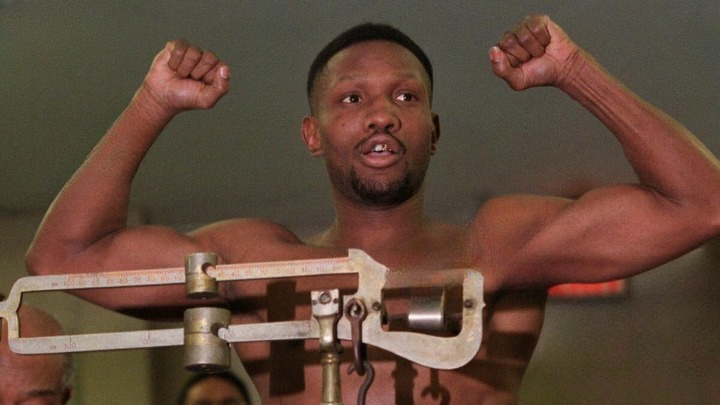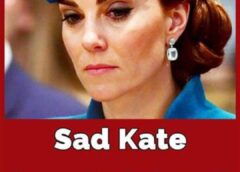In the history of boxing, there are fighters whose names echo far beyond their championship belts. They are remembered not only for their victories but for the discipline, perseverance, and humanity they showed inside and outside the ring. Among these figures, Evander Holyfield holds a special place. Known to millions as “The Real Deal,” Holyfield became a four-time world heavyweight champion and one of the sport’s most enduring warriors. Yet today, at 62 years old, when Holyfield speaks about boxing, his voice often turns toward someone else—a man whose skill was as dazzling as it was elusive: Pernell “Sweet Pea” Whitaker.
Whitaker, celebrated as one of the most technically masterful defensive fighters in history, carved a career defined by quick reflexes, supreme agility, and a ring IQ that baffled opponents. Although their careers never intersected in direct competition—each fought in very different weight classes—Holyfield and Whitaker shared a deep personal bond, forged not under the bright lights of Las Vegas, but in the camaraderie and grueling training of the United States Olympic boxing team.
Now, decades later, Holyfield is speaking more openly than ever about the lessons he learned from Whitaker—lessons that extend far beyond jabs and hooks, touching on resilience, humility, and the challenges athletes face once the final bell has sounded.
A Bond Forged in the Crucible of the Olympics
The summer of 1984 remains one of the proudest moments in American boxing history. That year, in Los Angeles, the U.S. men’s boxing team became one of the most successful in Olympic history, bringing home nine gold medals and producing future legends of the sport. Among the athletes were a young Evander Holyfield, competing in the light heavyweight division, and Pernell Whitaker, representing the lightweight class.
Although they stood apart in weight, they stood together in training. Long days in the gym, endless sparring sessions, and the constant push to outperform one another built a silent yet powerful bond. “We pushed each other every single day,” Holyfield recalls. “Even though we weren’t in the same division, we trained side by side. If one of us went all in, the other had to match that energy. That’s how champions are made—by being around other champions.”
Whitaker’s Olympic run culminated in gold, showcasing his defensive genius and lightning footwork. Holyfield’s path ended in controversy when he was disqualified in his semifinal bout—a decision still debated decades later. Holyfield remembers that moment vividly, not because of the heartbreak, but because of the friend who stood beside him. “Pernell was one of the first to console me,” Holyfield says. “We weren’t just teammates—we were brothers in the sport.”
Two Careers, Two Paths to Greatness
After the Olympics, both men turned professional, but their journeys unfolded in unique ways. Whitaker’s transition to the pro ranks was swift and dominant. He became a world champion in four weight divisions—lightweight, light welterweight, welterweight, and light middleweight—and was known for making even elite fighters miss punches by inches. His bout in 1993 against Julio César Chávez, widely regarded as one of boxing’s most controversial decisions, ended in a draw despite many believing Whitaker had clearly won.
Holyfield, on the other hand, built his legend in the cruiserweight and heavyweight divisions. His style was different—more aggressive, more physically demanding, and more reliant on grit than evasion. He became the only boxer in history to win the undisputed championship in both the cruiserweight and heavyweight divisions. His bouts against the likes of Mike Tyson, Riddick Bowe, and George Foreman remain etched in boxing history.
The two men were polar opposites in the ring: Holyfield’s relentless pressure contrasted with Whitaker’s defensive artistry. Yet Holyfield never shied away from praising his friend’s abilities. “Pernell had the kind of skill you couldn’t teach,” Holyfield says. “It was like the punches would come, and he’d just… not be there anymore. He could frustrate the best of the best.”
The Quiet Struggles Outside the Ring
While fans saw the glory—the championship belts, the sold-out arenas, the global recognition—Holyfield also saw another side of Whitaker’s life.
Over the years, Holyfield noticed his friend becoming less visible outside of fight nights. “He was private,” Holyfield reflects. “Sometimes you’d notice he didn’t come to events. Calls would go unanswered. You can feel when someone is carrying a weight they don’t talk about.”
Whitaker’s post-boxing years were marked by challenges that are, sadly, not uncommon among athletes. Financial difficulties, legal disputes, and the loss of the structured lifestyle of training camps all played a role. For many fighters, the end of a career brings not only financial adjustments but also an emotional void.
Holyfield understands this well. “When the crowd stops cheering, you have to face life in a whole new way,” he says. “For years, you’ve had a team around you, a routine, a purpose. Then one day, it’s just you. Finding that next chapter is hard.”
The Final Goodbye
In July 2019, the boxing world was stunned by the news of Pernell Whitaker’s passing at just 55 years old following a tragic traffic accident in Virginia. Tributes poured in from across the sports world—fellow fighters, commentators, and fans all remembering his dazzling performances and warm personality.
For Holyfield, it was a deeply personal loss. “It hit me hard,” he admits. “He wasn’t just one of the best to ever do it; he was someone I shared a journey with from the very start. I think about him often.”
Lessons for the Next Generation of Fighters
Today, Holyfield is using Whitaker’s story as a teaching tool—not to dwell on the difficulties, but to help current and future athletes prepare for what comes after their careers.
“Pernell gave everything to boxing,” Holyfield says. “Skill, heart, time—he poured it all into the sport. We have to make sure that fighters have the right support systems in place so they can thrive when they hang up the gloves.”
He emphasizes three key lessons:
- Plan for the Future While You’re Still Competing – Financial planning, education, and long-term goal setting are crucial for athletes whose careers can end suddenly due to injury or decline.
- Prioritize Mental Health – The transition from constant public attention to relative anonymity can be difficult. Building a life outside of sport is essential for emotional well-being.
- Value Relationships – The people you meet in the gym, in competition, and along the way can become lifelong friends and sources of support.
Remembering the Man Behind the Legend
Whitaker’s legacy will always be tied to his brilliance in the ring. His ability to make opponents miss, his creativity, and his ring generalship earned him a place among the sport’s all-time greats. But for Holyfield, it’s just as important to remember Whitaker as a person.
“People see the highlights, but I saw the man who could make you laugh in the locker room, who would push you in training, who had your back when things went wrong,” Holyfield says. “That’s the Whitaker I carry with me.”
A Lasting Impact
The stories of Holyfield and Whitaker are part of a larger conversation about the realities of professional sports. For every world champion, there’s a human being navigating personal challenges, career transitions, and the passage of time. Holyfield’s willingness to speak about these issues shows that the measure of a champion is not just in their titles, but in their willingness to help others avoid the same pitfalls.
As Holyfield reflects on more than 40 years in and around the sport, he knows that what matters most now is not the fights he won, but the wisdom he can share. “Boxing gave me a lot,” he says. “But the friendships—the real friendships—are what I’m most grateful for. Pernell was one of those friends. His story deserves to be told honestly, so others can learn and grow.”
Evander Holyfield’s voice carries the weight of experience—both his own and that of the people he’s known along the way. In telling Pernell Whitaker’s story, he’s also telling a story about resilience, the importance of planning for life after glory, and the unbreakable bonds that sports can create.
For Holyfield, the message is clear: celebrate the victories, learn from the struggles, and never forget the people who stood with you on the journey. In that sense, Whitaker will always be in his corner.



